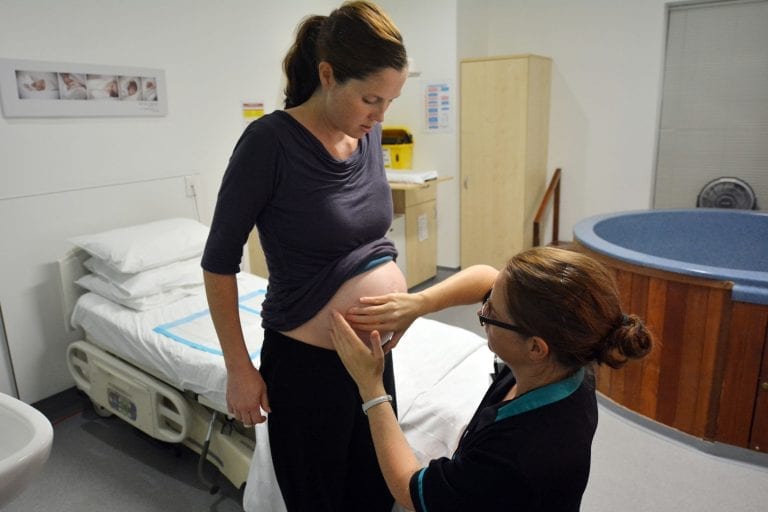Are you having a pregnancy emergency? Is birth imminent? There are many reasons your healthcare provider may send you to the hospital birth unit for a quick check.
A friend tells you she went to the hospital in what she thought was labor and waited for what seemed like hours before being sent home. You can tell she is fed up and not looking forward to when she goes back the next time.
So what can you expect if you get sent to your hospital birth unit during pregnancy, whether you think you may be in labor or if you’re experiencing another problem, like bleeding?
Obstetric triage at the hospital birth unit
At larger hospitals you’ll likely go to an area of the birth unit called “OB triage.” At a smaller or less busy hospital you may go straight into a birth room for care. You’ll first see a nurse, and they’ll want to know why you’ve come, any labor signs like contractions or your water breaking, if you’ve had vaginal bleeding, how your baby is moving and how your pregnancy has been going.
Your nurse will review your medical records, if available. They’ll check your blood pressure, pulse and temperature. If you’re in labor they’ll see how you’re coping with the contractions. Nurses working in this area are expected to see you as promptly as they can; their assessments typically take about 10 minutes.
Priorities in pregnancy & care
Based on their findings, your nurse will assign you a priority level, from 1-5, which rates how urgently you need care. Assigning a priority level is called triage. A woman at the highest priority level, a “1,” needs attention right away, for example, if her baby is about to be born. A woman who is assigned a “5” could be at the birth unit for a scheduled procedure. Someone in active labor needs to be seen promptly, so she’s likely a “3”.
Triage is not first come, first served. Someone who has a more urgent need for care will be seen first. Call your midwife or doctor before you go to the hospital birth unit ; they can advise if going in is needed, or if staying home is a better play, for example, to wait for contractions to get closer and stronger. If you’re too anxious to stay home, tell them you would feel better to come in and be evaluated.
Once you’ve been checked out by your midwife or doctor, the two of you can make a plan about whether you need to be admitted to the hospital birth unit, be observed for a period of time or if you can return home. Getting all of your questions answered as you make decisions will help you have peace of mind, especially if the decision is for you to return home.






Comments are closed.